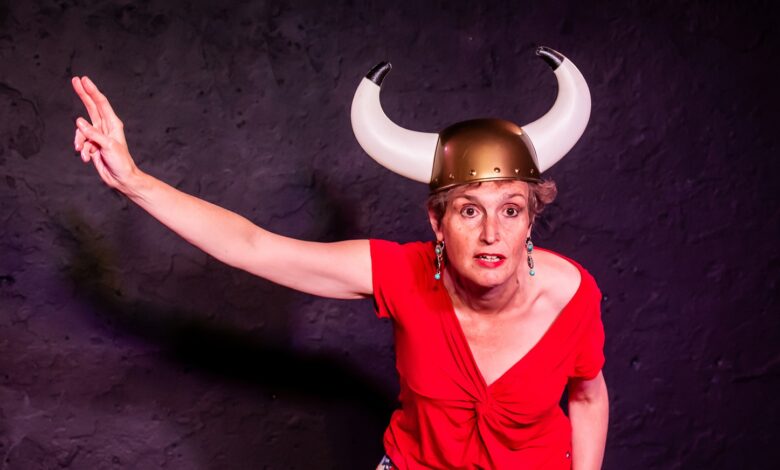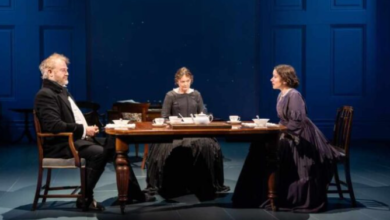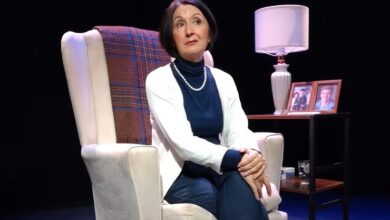Review: The Full English, Barons Court Theatre
An overlong lecture on the history of the English language. Some fascinating content and witty poetry, but needs better presentation to bring those words to life.Rating
Ok
“I used to be an English teacher,” Melanie Branton tells us early on in The Full English, and you get the feeling she would have been a great one. Her enthusiasm for her subject is more than obvious as we get a whirlwind history of two thousand years of the English language, from the Vikings all the way to the modern day and social media.
We learn some interesting facts, such as how only about 25 percent of the language we use today came from original English, while the rest has been absorbed from a whole host of foreign tongues. Or how the way we pronounce our vowels has greatly shifted, which does explain so many of the oddities in the language today. Excitement for her topic is obvious in her tone. In between the history lessons we are treated to poetry, too, which again you have to admire for the dexterity of her words.
But admiration doesn’t always translate into a great show – and that’s the problem. Admire it? Yes, but enjoy it? No. It’s just all a bit monotone, which for someone who plays with language for a living is quite surprising. It’s also way too long, so that monotone really does begin to cultivate a feeling of wanting it all to end.
The show is in serious need of an external eye: ideally a director, but at the very least a dramaturg. Just someone who can both tidy it up and help bring it to life in a much better way. There are enough moments where you can really appreciate the writing, but the delivery is just off. It feels at times as if this is simply Branton’s school lessons transferred to the stage, and we all know why school lessons are not two hours long! Raising and lowering her voice doesn’t change the delivery enough to prevent the monotony. Towards the end, there is a poem recital where Branton switches from almost singsong to spoken word, and you just want her to pick one or the other, something that again an external eye (or ear) would be able to advise on.
Speaking of presentation, there was much more room for inventiveness; again, a director could offer help with this. Holding up cards or flicking through a book means Branton has to pause between lines, sometimes even words, of her script, which often kills the flow. More effort and thought are needed to avoid this. Perhaps the use of a projector could both prevent the need for unnecessary hesitations, and also allow more visuals altogether, to bring her words to life and stem the dryness of it all.
Things are not helped by the sparse audience. Bringing in audience participation when your audience hasn’t yet reached double figures is tough, and even those more skilled in the practice can struggle. In a space as quiet as this one, it just makes it even harder, and at times you can feel the energy just drain from the room.
The Full English does offer some fascination, especially for those who are interested in the history of our weird language. But for the rest of us, it’s too long, too dry, and in need of much better presentation to bring Branton’s often wonderful words to life.
Written and directed by Melanie Branton
The Full English plays at Barons Court Theatre until Saturday 20 September.






